Five secrets to the success of billion-dollar startup Canva from co-founder Melanie Perkins


Fresh from her company recently claiming the title of Australia’s latest unicorn, Canva co-founder Melanie Perkins has taken some time to respond to questions from the Australian startup community, providing 21 answers to questions about Canva’s journey from yearbook publishing startup Fusion Books to a massive global design company.
We’ve plucked some of the most interesting and insightful answers from Perkin’s recent Medium post, which shine a light on the secrets of Canva’s success.
We didn’t really ‘decide’ to bootstrap Fusion, we just didn’t know there was an alternative. However, in retrospect I’m incredibly glad that we did go down that path. If it wasn’t for those years of figuring things out on our own, learning the ropes of business and being deeply focused on our customer’s needs I don’t think Canva would be anywhere near where it is today. We were so inexperienced when we started that the lure of ‘what’s popular’ and ‘proven’ probably would have drowned out our own opinions.
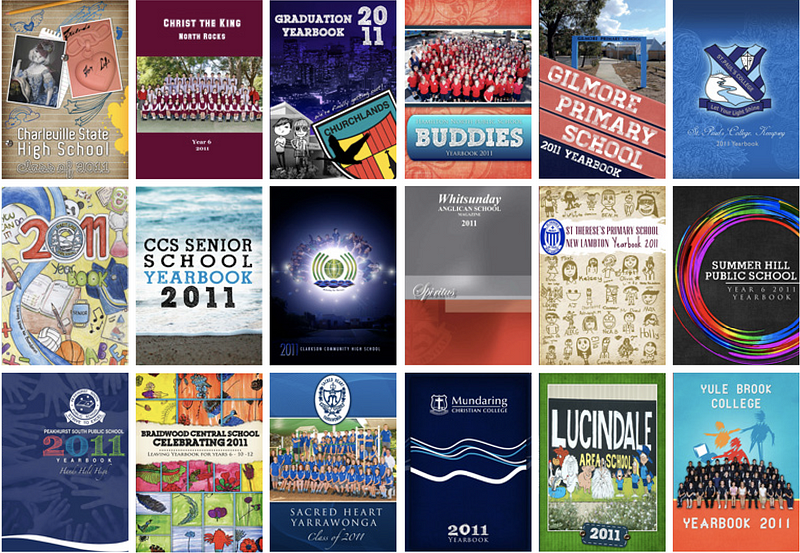
However, a serendipitous moment occurred after a few years of building Fusion which I’m incredibly grateful for. We had entered a competition in Perth called WA Inventor of the Year. We came runner-up and as pictured below wore dorky suits everywhere at this stage, as we thought it made us look more professional.
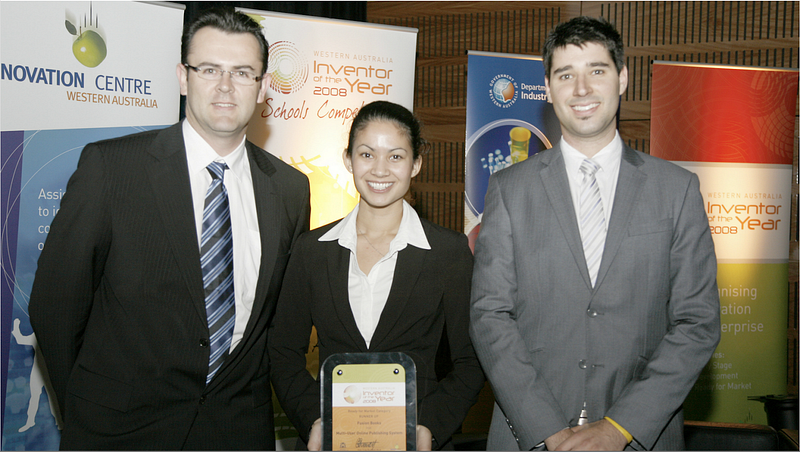
The concept all the way back then was very similar to what we’re doing today, but we were trying to make it sound very “inventor-y”:

The following year we were invited back to attend the awards and after the event, we had a quick chat with Bill Tai, an investor who was speaking at the event and had flown over from Silicon Valley.
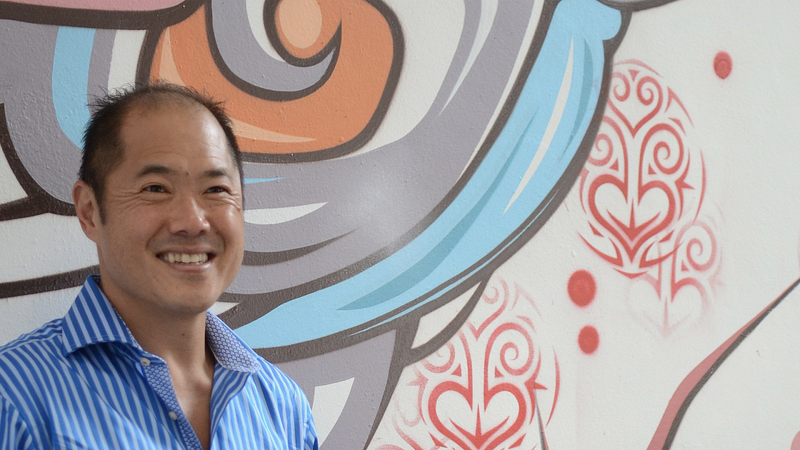
He was the first investor we’d ever met, and the short five-minute chat felt like a window had opened into a whole new world.
He sent me his contact details and said if I ever went to Silicon Valley, he’d meet. I couldn’t believe my luck. There was a whole world of companies out there who were trying to create software. I sent him a bunch of emails trying to set up a Skype chat that elicited no response, but then decided I was going to just go all in and say that I was going to visit San Francisco — trying to act somewhat cool by pretending I was just going to be in the hood rather than making a special trip to meet with him:
“Hi Bill, hope all is well. I’m going to be in San Francisco from 21st May to 1st June. Are you still interested in an investment in my area? If so, would be great to meet up and have a chat.”
He said he’d meet. I could not believe it, I was over the moon. He also said:
“you should also meet up with Lars Rasmussen at Facebook (ex google wave lead) ill intro you separately.”
I could not believe my luck. My eyes almost fell out of my head. My nerves kicked in immediately and stayed for the next few months as I prepared for the scariest and most high-stakes meetings of my life. I printed out my plans for ‘the future of publishing’ on the printing presses in my Mum’s living room and packed to go to San Francisco. The email Bill probably nonchalantly wrote with one hand changed the course of my life …
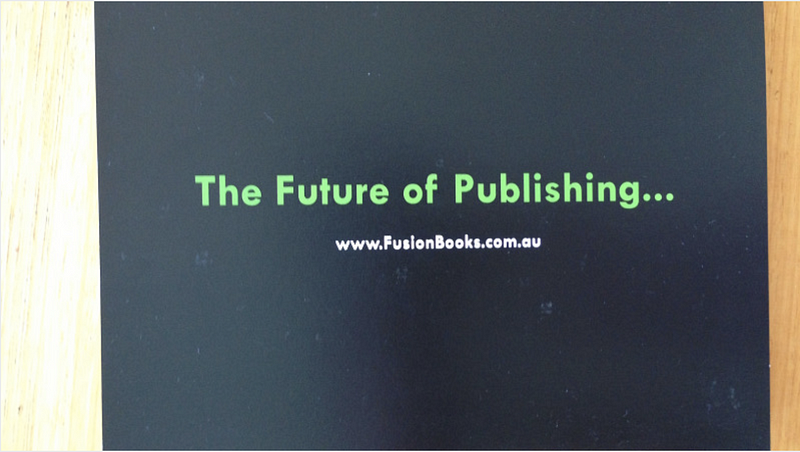
We didn’t really make a conscious choice between being bootstrapped or being funded. We bootstrapped because that was the only thing we knew when we started and we pursued funding because it seemed like the only feasible path to truly pursue our vision and build out ‘the future of publishing’.
As soon as I met Bill I started to research as much as I possibly could about this brand new world of venture capital and these so-called ‘startups’.
My brother, Greg, was studying in San Francisco at that point, and kindly let me crash on his floor for my two week trip. Bill organised to meet for lunch. He suggested a cafe called University Cafe, on University Avenue in Palo Alto. I was so nervous in the days leading up to the meeting that I made a mental deal with myself that if I was able to successfully catch the train and get myself to the meeting I would award myself some brownie points, even if the meeting was a flop.
I had been researching the business attire of people in Silicon Valley before I went there and learnt that people dress casually there, even in a business setting:
“Whatever makes you feel comfortable, but at the same time err toward smart casual rather than just casual — its what you are saying that’s important at this stage, not whether you have a jacket on.”
Hmm it sounded like my pantsuits wasn’t going to cut it. So I went out and bought a business dress and just wore my suit jacket. I thought this would fit the criteria of a more casual dress code. Needless to say, it didn’t… The first thing Bill said was “you didn’t need to get dressed up”. I was mortified!
I then pulled out my printed pitch deck to explain the future of publishing and Bill asked if I had an iPad or an iPhone. I didn’t have either at this point. Again, I felt my heart sink into the floor.
Something that we could never be criticised for is our lack of ambition. This was one of the slides I presented…
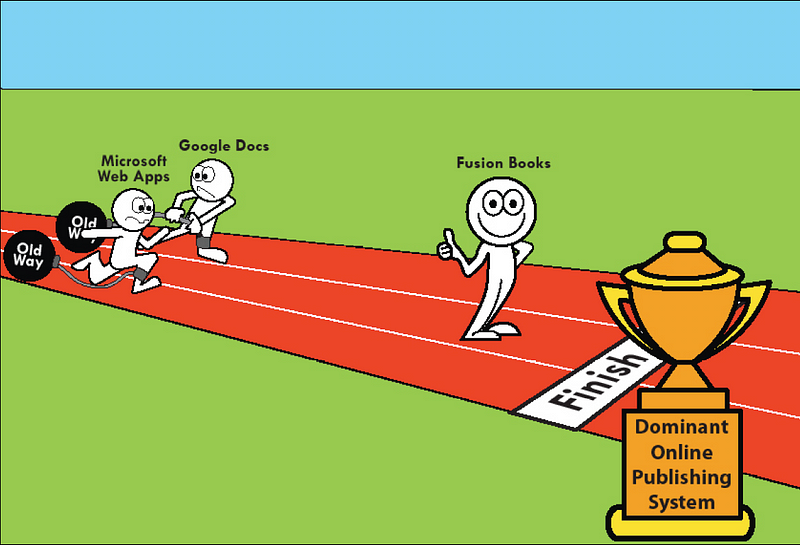
I cannot imagine what Bill must have thought as this girl from Australia nervously presented her paper pitch deck over lunch and said that she and her partner were going to beat Google Docs and Microsoft.
Our lunch arrived. I then tried to eat my lunch while flipping through the pages in my pitch deck and explain what I believed would be ‘the future of publishing’.
I’d also read that if you mimic someone’s body language they’ll like you more. So I tried to do that too at the same time — when Bill put one arm behind his chair, I realised it was too far. I didn’t have enough hands to flip the pages in my deck, eat my lunch and put my hand behind my chair. It was quite distressing!
Bill was also on his phone throughout lunch and I felt like it was a complete flop. I left the meeting feeling like I had failed badly.
However, after the meeting I looked at my emails and realised Bill had sent me a number of intros. Maybe it hadn’t been quite as bad as I had thought. I went and forked out for an iPhone and iPad too.
Fortunately the meeting with Lars went much, much better. We spoke for hours about the future of publishing. We found a lot of similarities between his mission with Google Wave, and what I wanted to accomplish with my concept. He said he’d be happy to help me find a team, I emailed Bill after that meeting:
“I just got back from my meeting with Lars and it went really well. He was excited by the idea and thinks we are on the right track. It sounded as if our ideas are very much in line with a few particular issues/opportunities they have been considering lately. He has said he will help me choose the engineers to recruit as well, which was very generous of him.”
I forwarded my email to Cliff and he responded:
“You are the best business woman in the world and I am so proud of you, well done you WILL SUCCEED I HAVE NO DOUBT. I can call you if you want :)”
Cliff’s unwavering support, constant optimism and work ethic has been absolutely foundational to our success over the years.
Bill then responded:
“GREAT to hear Melanie!! I thought it’d be a good connection for you… I truly am excited he will help recruit coders for you. if the tech team looks solid, I’d be excited to back you and team. I know its a bit of a catch 22 but let’s see if you can pull it all together with a little bit of networking help from me and others!”
I called Cliff immediately, we danced with teary eyes whilst on the phone. I could not believe our luck. Next mission: find a ‘tech team’… I deferred my flight home and set to work.
So in answer, to the question — why did you pursue investment? Well, it was just the next stop on the train and seemed like the only path towards building out our incredibly over-sized vision.
It is challenging and a constant work-in-progress. Elon Musk sent a tweet recently that I thought were really important for the startup community to hear:
The reality is great highs, terrible lows and unrelenting stress. Don’t think people want to hear about the last two.
— Elon Musk (@elonmusk) July 30, 2017
One day when I was particularly tired, my very kind brother came over, made me dinner and brought my favourite snacks. He then wrote me some great *anti-motivational* quotes which I have since stuck to my wall:
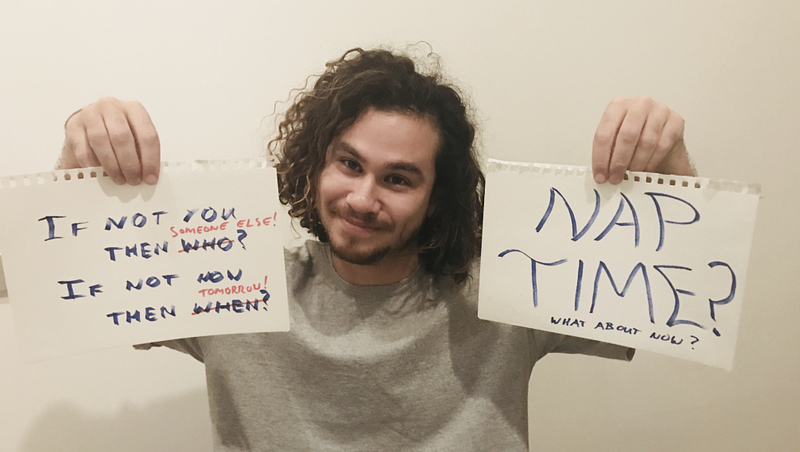
Cliff works incredibly hard, but also has an uncanny knack to be able to switch off and relax as well which helps us both a lot. Here’s one of the quotes he wrote on our whiteboard at home:
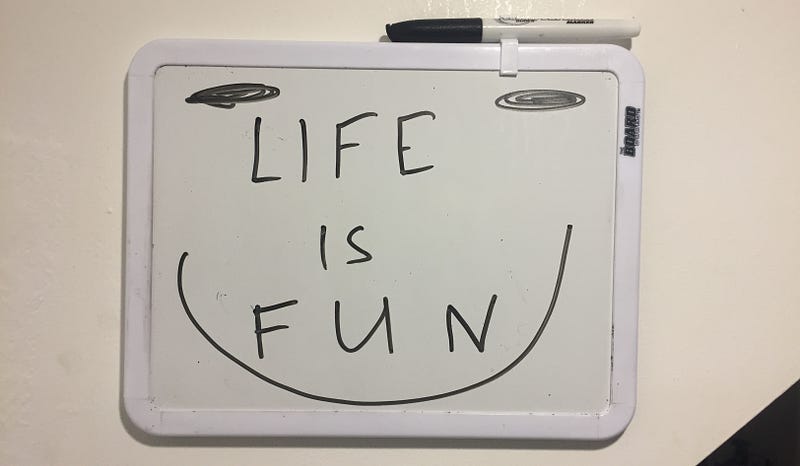
Here’s a few practical things:
YES! Absolutely critical. Cam gave us the credibility that we needed to land the investment, but he’s also incredibly talented and a genuinely great guy — it’s been a privilege working with him for the last five years.
I would add that using a software development company was really useful in those early Fusion days. It meant that we could learn, explore and gain some skills. It would have been impossible to get Cam to join us in those very early Fusion days. I think hiring software development companies in your very early days as you figure the basics out is probably underrated.
Check out the rest of Perkin’s answers — including some about Canva’s early day pitch decks — here.
This is an edited version of a post that first appeared on Medium and was republished with permission.
Follow StartupSmart on Facebook, Twitter, LinkedIn and iTunes.
Comments